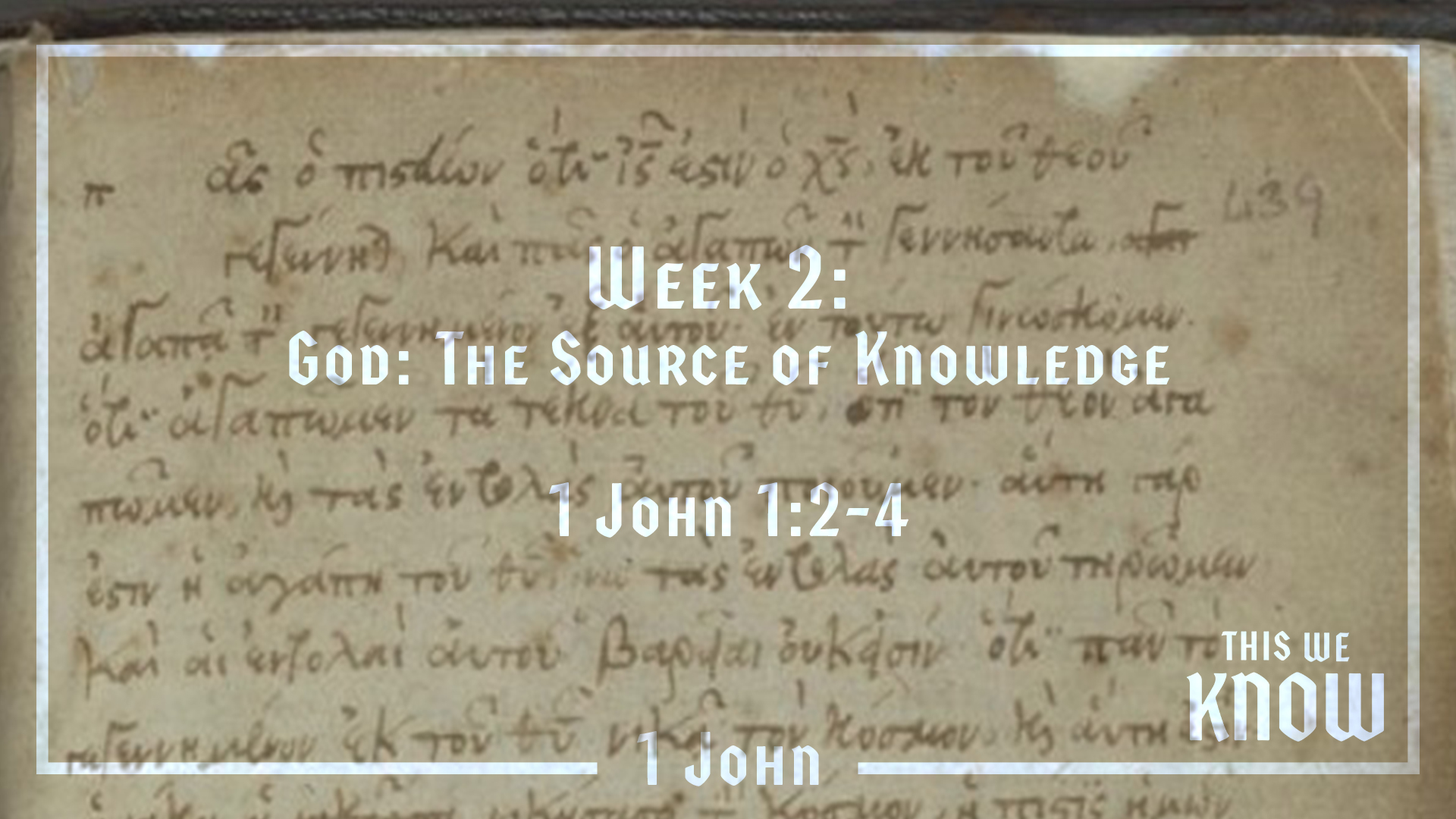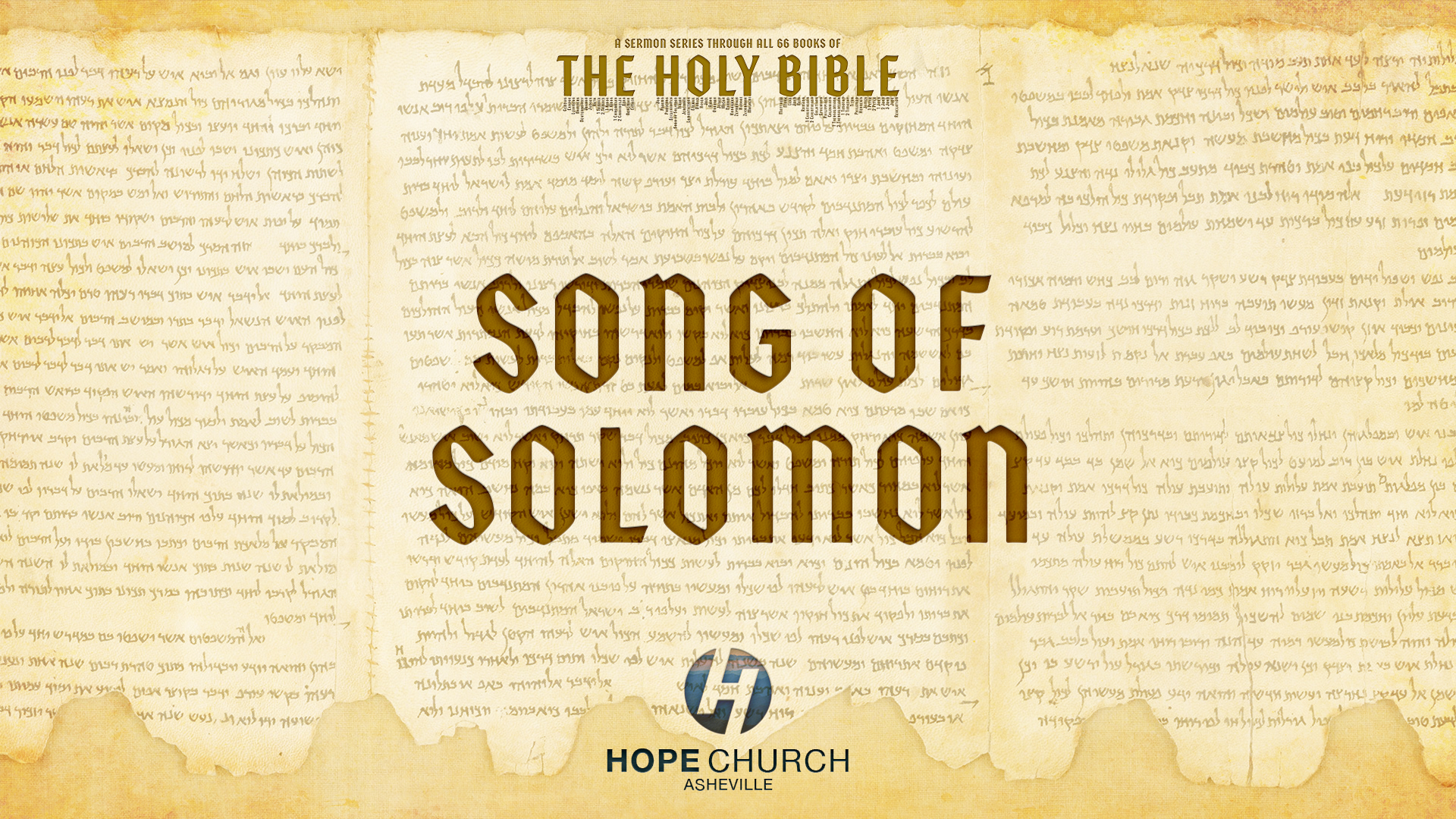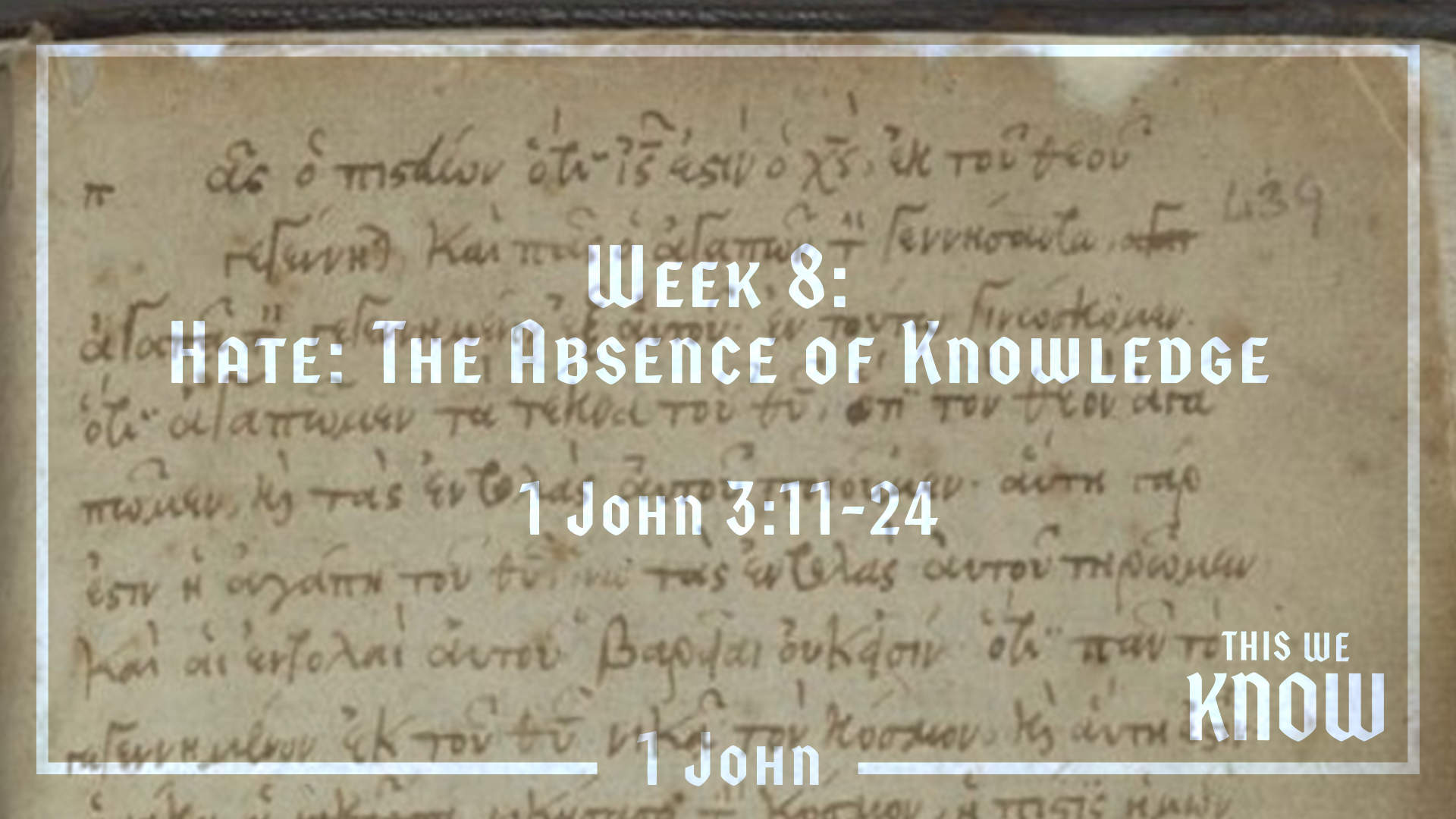Episode Transcript
Exodus
Let's open our Bibles together to the Book of Exodus.
In our last gathering, we studied the Book of Genesis. The first section of Genesis, chapters 1-11, covered just over 2,000 years. The second section, chapters 12-50 covered around 300 years. In Genesis 12, God told Abraham, “I will make of you a great nation… in you all the families of the earth shall be blessed”. In Genesis 15, when God made His covenant with Abraham, God predicts the future of his offspring, “13 Then the Lord said to Abram, “Know for certain that your offspring will be sojourners in a land that is not theirs and will be servants there, and they will be afflicted for four hundred years. 14 But I will bring judgment on the nation that they serve, and afterward they shall come out with great possessions. 15 As for you, you shall go to your fathers in peace; you shall be buried in a good old age. 16 And they shall come back here in the fourth generation, for the iniquity of the Amorites is not yet complete.” These 4 verses are an overview of the Book of Exodus or we could say the Book of Exodus is the Expanded Version of these 4 verses.
Exodus covers 355 years.
Importance:
The Book of Exodus matters because it gives us a record of God’s redemptive work in His world through His covenant people. It shows us God’s wisdom, power, mercy, compassion, judgment, love, justice, and His patience. Exodus reveals the God who saves his people. From Exodus we come to understand that God is actively involved in history. He hears prayer. He answers. He saves, but God does things in his own way, in his own time, and for his own glory. Exodus teaches us what we should expect from God. Exodus gives us reason to trust God in difficult times. Exodus shows how God is at work to save the world from sin, death, and the devil. [Silverio Gonzalez: Why the Book of Exodus Matters For Your Life - Core Christianity]
Exodus also gives us an amazing picture of the oppressive bondage of sin, salvation from slavery, and what it means to live as God’s people.
In Exodus we see the miraculous power of God delivering His people from Egypt through the plagues, parting the Red Sea so the Israelites could walk through on dry land, providing food and water in the wilderness, and giving His law and instructions for the Tabernacle to Moses.
God gives His law to His people so that they could live in holiness before Him. He gives detailed instructions for the Tabernacle, so they could worship God properly. The Tabernacle was the place where God would dwell with His people. His presence was among His people.
Storyline:
Genesis ends with the rescue of God’s people into Egypt through Joseph, who is a type of Christ. Genesis 50:19 But Joseph said to them, “Do not fear, for am I in the place of God? 20 As for you, you meant evil against me, but God meant it for good, to bring it about that many people should be kept alive, as they are today.
Exodus 1:6 Then Joseph died, and all his brothers and all that generation. 7 But the people of Israel were fruitful and increased greatly; they multiplied and grew exceedingly strong, so that the land was filled with them. 8 Now there arose a new king over Egypt, who did not know Joseph. 9 And he said to his people, “Behold, the people of Israel are too many and too mighty for us. 10 Come, let us deal shrewdly with them, lest they multiply, and, if war breaks out, they join our enemies and fight against us and escape from the land.” 11 Therefore they set taskmasters over them to afflict them with heavy burdens. They built for Pharaoh store cities, Pithom and Raamses. 12 But the more they were oppressed, the more they multiplied and the more they spread abroad. And the Egyptians were in dread of the people of Israel. 13 So they ruthlessly made the people of Israel work as slaves 14 and made their lives bitter with hard service, in mortar and brick, and in all kinds of work in the field. In all their work they ruthlessly made them work as slaves.
2 Sections:
Exodus of Israel from Egypt (Ex. 1:1–18:27)
Setting: Israel in Egypt (Ex. 1:1–2:25) (New Pharaoh, Murder of baby boys, Moses Rescued, Raised as Pharaoh’s grandson, Rejects Egypt, Murders Egyptian, Escapes to Midian, God hears Israel’s Cries)
Call of Moses (Ex. 3:1–4:31) (Burning bush, Return to Egypt)
Moses and Aaron: initial request (Ex. 5:1–7:7)
(Pharaoh rejects God and burdens Israel more)
Plagues and exodus (Ex. 7:8–15:21)
The plagues were designed to show the impotence of the Egyptian idols, the supremacy of God’s power and the futility of resisting His declared will. The plagues also showed His mercy, being tailored to disrupt and humiliate the worship of their pagan deities without causing loss of human life until the final plague, which occurred only after God had exhausted every other option (Graeser, et. al, Don’t Blame God, 74).
The first plague, turning water into blood, revealed the impotence of Khnum, the guardian of the river, Hapi, the spirit of the Nile, and Osiris, whose blood was the Nile.
The second plague, the frogs, revealed the impotence of Hapi and Heket, who were symbolized by frogs and were related to Egyptian fertility rites.
The third plague, that of lice, revealed the impotence of Seb, the earth god.
The fourth plague, that of flies, revealed the impotence of Uatchit, the god of flies.
The fifth plague, the disease on cattle, revealed the impotence of Ptah, Mnevis, Hathor, and Amon, Egyptian gods associated with bulls and cows.
The sixth plague, the plague of boils, revealed the impotence of Sekhmet, the goddess of epidemics, and Imhotep, the god of healing.
The seventh plague, the hail mixed with fire, revealed the impotence of Nut, the sky goddess, Isis and Seth, Egyptian agricultural deities, and Shu, the god of the atmosphere, weather, and sky.
The eighth plague, the swarms of locusts, revealed the impotence of Serapia, the deity who was to protect Egypt from locusts.
The ninth plague, that of darkness, revealed the impotence of Re, Amon-re, Aten, Atum, and Horus, all of who were related to the sun.
Finally, the tenth plague, the death of the firstborn sons of Egypt, revealed the impotence of Pharaoh himself, who was worshiped as a deity in Egypt.
(Passover Lamb, Pilar of Cloud by day, Pillar of Fire by night, Crossing The Red Sea, Destruction of Egyptian army in Red Sea)
Closing out the first section:
Journey (to Sinai) (Ex. 15:22–18:27)
(Song of Moses, Miracle of Bitter water made sweet, Manna From Heaven, Water from the Rock, Israel Defeats Amalek)
Covenant at Sinai (Ex. 19:1–40:38)
Setting: Sinai (Ex. 19:1–25)
Covenant words and rules (Ex. 20:1–23:33)
10 Commandments,
Covenant confirmed (Ex. 24:1–18)
Instructions for the tabernacle (Ex. 25:1–31:17)
Moses receives the tablets (Ex. 31:18)
Covenant breach, intercession, and renewal (Ex. 32:1–34:35)
(Worship of Golden Calf, Punishment)
Tabernacle: preparation for the presence (Ex. 35:1–40:38)
(Making and constructing the Tabernacle, Ark, Altar, Furniture, Priestly Garments)
[ESV® Study Bible (The Holy Bible, English Standard Version®), copyright ©2008 by Crossway, a publishing ministry of Good News Publishers.]
Exodus ends with God’s presence with His people in the Tabernacle.
- Deliverance Into Egypt (Genesis 46 - Exodus 1) Protection & Provision
- Deliverance Out of Egypt (Exodus 2 - 15) Set free from Slavery
- Deliverance From Egypt (Exodus 15 - Malachi 4) Sanctification
Christ Connection:
According to Luke 24:27, 44–45 Christ is found in “all the Scriptures.” Exodus 33:17 He is the One greater than the deliverer, Moses
In Exodus we find Christ:
The Voice in the Burning Bush (3.1-6)
The Passover Lamb of God (12.1-28)
The Unleavened Bread (13.3-10)
The Rock/Pillar of Cloud and Fire leading them (13.21-22)
The Manna from Heaven (16.1-36)
The Source of Living Water (17.1-7)
The Tabernacle (25-40)
Exodus offers the greatest paradigm (of) redemption… in the Bible prior to Christ’s incarnation. …it is profoundly good news to captives, to those who labor in bondage to sin and misery. …it shapes (our) understanding of and (our) hope for redemption. …through the life, death, burial, resurrection, ascension, and continued ministry of Jesus, we have a new exodus, a fulfillment of what Exodus pictured for the people of God.
(After their deliverance) Moses’ song ends, “The Lord will reign forever and ever” (Ex. 15:18). [Sean Michael Lucas: Christ in All of Scripture - The Gospel of Exodus]
Leviticus
This book has been the punchline of more jokes than most and many reading plans have been derailed by this book.
16 All Scripture is breathed out by God and profitable for teaching, for reproof, for correction, and for training in righteousness, 17 that the man of God may be complete, equipped for every good work.
Leviticus covers 1 Year in 1 location.
Importance:
- God is speaking!!!!!
- This is God’s requirement for His people, Israel. (It is written to them)
Conditions of the Covenant
- God clearly and specifically communicates His will for His people.
- God desires to be with His people.
- Sin is a BIG deal.
Separates us from God and Each other - Our Purpose and Meaning,
No Sin - No Christ,
No Bad News - No Good News
- God makes a way for sin to be dealt with.
This is not simple or easy.
This can only be done by God and in God’s way.
- The atoning sacrifices were a shadow pointing to something greater.
- Christ!
- “blood” occurs 87 times in 65 verses
Leviticus 17:11 For the life of the flesh is in the blood, and I have given it for you on the altar to make atonement for your souls, for it is the blood that makes atonement by the life.
Hebrews 9:22 22 Indeed, under the law almost everything is purified with blood, and without the shedding of blood there is no forgiveness of sins.
- If it were not for Leviticus, God would not have dealt with Israel. If He had not dealt with Israel, He never would have dealt with us!
- Blessing is connected with Obedience
Moses, Priests, People did…
“As the Lord commanded Moses” Exodus - 23 Leviticus - 11
- It is very practical - for their good! God’s wisdom leads to blessing. Even when we don’t understand why. (Food, health, disease)
- The first five books of the Old Testament, admittedly, are not devoted entirely to (listing) medical prescriptions. They are not ancient medical textbooks. These books do, however, contain numerous regulations for sanitation, quarantine, and other medical procedures that were to govern the daily lives of the Israelite nation. Missing entirely from the pages of these writings are the harmful remedies and ingredients prescribed by other ancient civilizations. (Contrast with Egypt) In fact, the Pentateuch exhibits an understanding of germs and disease that much “modern” medicine did not grasp for 3,500 years after the books were written.
- 1847 Austrian Doctor - 18% Death Rate for Birth Mothers
Every other advanced nation was the same
Tried many different remedies to no avail
“each day medical students and doctors performed autopsies on dead mothers, rinse their hands in a bloody bowl of water, wipe them off on a common towel, then begin immediate examinations of living mothers.
(Only 176 years ago) [ https://apologeticspress.org/scientific-foreknowledge-and-medical-acumen-of-the-bible-2024/]
- God’s People are to be Holy as God is Holy.
“holy" occurs 92 times in 78 verses (Set apart from sin, FOR GOD)
Leviticus 11:45 For I am the LORD who brought you up out of the land of Egypt to be your God. You shall therefore be holy, for I am holy.” (repeated multiple times)
Leviticus: God’s Plan, Presence, Protection, Provision
(Same for Christians)
Leviticus speaks of many ideas and concepts that find their ultimate fulfillment in the person and work of Jesus—sacrificial atonement, for example, or the priesthood. The book of Hebrews makes much of these connections, emphasizing again and again that Jesus is the Great High Priest (Heb. 4:14; 10:21), the one without any sin (Heb. 9:14; cf. Heb. 9:7), who offers himself as the ultimate sacrifice that cleanses all our sin (Heb. 1:3; 7:26–27; 9:12, 14, 26, 28; 10:10, 12, 14; 13:11–12) and therefore gives us confidence to draw near to God ( Heb. 10:19–22).
In order to read Leviticus well we must therefore remember these two things: (1) the many ways that Jesus has become the far greater priest who intercedes for us on the basis of his perfect and far greater atoning sacrifice; and (2) that obedience to God’s law is not meant to earn his salvation but to be an appropriate response to the salvation he has so richly provided. [ Jay Sklar: The Gospel in Leviticus - Christ in All of Scripture]
Gospel:
- God’s plan includes the salvation of all who believe in Him and His provision for sin. Those who are covered by the blood of the Lamb are forgiven and holy.
- God’s redeemed people are called to live holy lives that Glorify God and lead others to Him.
- God’s word is given for our good. True success is defined and provided by God.


